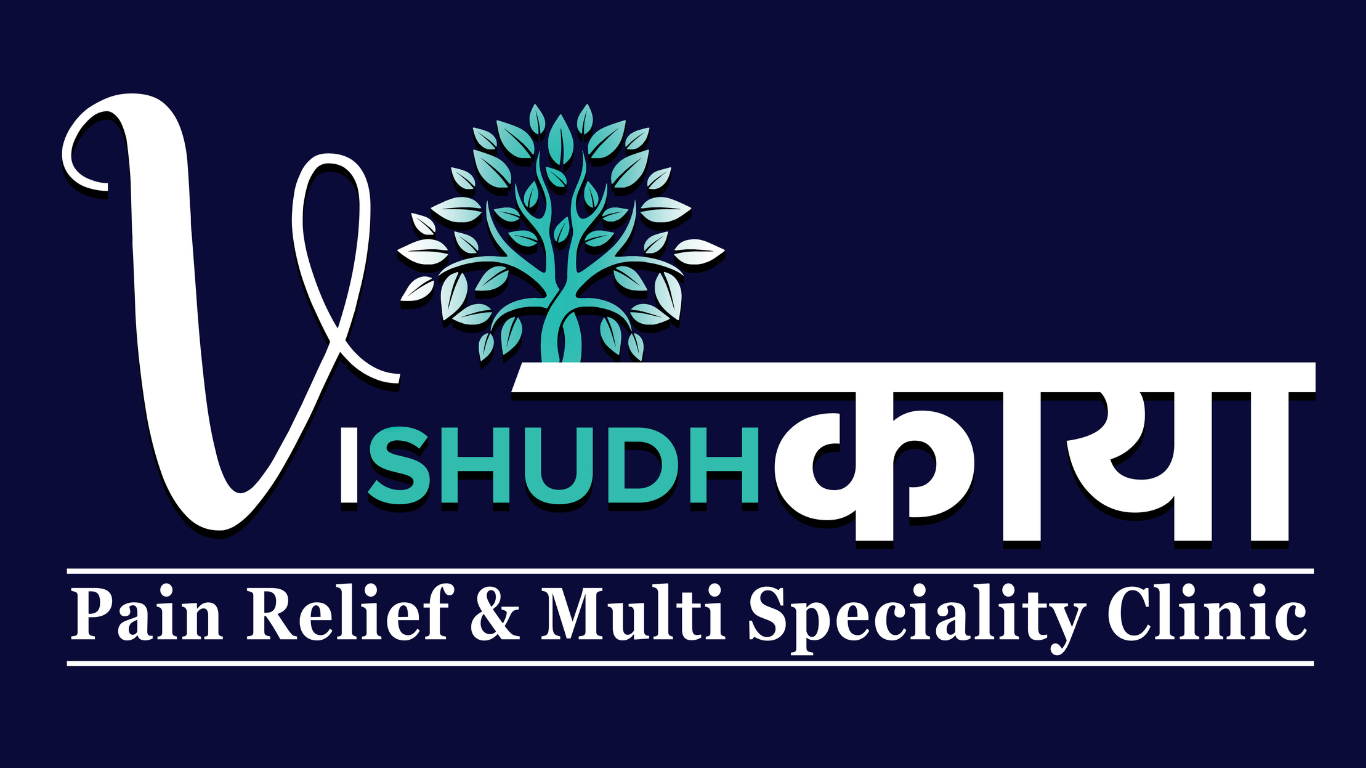Stress and physical health are closely intertwined. When faced with stress, the body activates its “fight or flight” response, releasing stress hormones like cortisol and adrenaline. While this response is helpful in short-term situations, prolonged or chronic stress can negatively impact the body. Over time, it may lead to muscle tension, stiffness, and even joint pain as the muscles remain in a heightened state of contraction. This chronic tension often contributes to poor posture, which can further strain the spine and muscles, resulting in discomfort, headaches, or even chronic back pain.

Additionally, stress can disrupt the nervous system’s balance, leading to sleep disturbances, fatigue, and weakened immunity. If left unmanaged, these physical symptoms can escalate, diminishing overall quality of life.
Chiropractic Treatment for Stress Relief offers a holistic and effective approach to addressing stress-related physical symptoms. By realigning the spine, releasing muscle tension, and improving nervous system function, chiropractic treatments not only alleviate pain but also help the body achieve a state of relaxation and balance. Through gentle adjustments and targeted therapies, chiropractic care can promote better posture, ease muscle tension, and even improve sleep quality—all of which contribute to stress relief.
At Vishudh Kaya Pain Relief and Multispeciality Clinic, we specialize in providing comprehensive chiropractic treatments tailored to each individual’s needs. Our experienced chiropractors are committed to helping patients manage the physical effects of stress and restore overall well-being through personalized care and a holistic healing approach.
Understanding Stress and Its Physical Effects
Stress is the body’s natural reaction to any challenge or demand, whether it is physical, emotional, or psychological. In response to stress, the body initiates the “fight or flight” mechanism, releasing hormones such as cortisol and adrenaline. These hormones prepare the body to respond quickly to perceived threats by increasing heart rate, sharpening focus, and tensing muscles.
While this response is beneficial in short-term situations—like avoiding danger or meeting deadlines—chronic stress can lead to long-term health problems. The constant release of stress hormones places a continuous strain on the body, contributing to both physical and emotional imbalances. Over time, this can result in fatigue, weakened immunity, and the development of chronic conditions, making stress management essential for overall well-being.
Chronic stress often manifests in physical symptoms that can interfere with daily life. Some of the most common symptoms include:

Muscle Tension: Muscle tension is one of the earliest and most noticeable signs of stress. When the body remains in a state of heightened alertness for prolonged periods, muscles—particularly in the neck, shoulders, and lower back—tend to tighten and stay contracted. This persistent muscle tightness can lead to soreness, limited flexibility, and discomfort. If left untreated, muscle tension may also contribute to postural imbalances and chronic pain conditions.
Headaches: Tension headaches are a frequent consequence of stress. They occur when the muscles around the head, neck, and scalp tighten and contract, creating a dull, aching pain. Chronic stress can also exacerbate migraines by triggering muscle tension and increased sensitivity to stimuli. Repeated or long-lasting headaches are often a sign that stress is impacting the body beyond its natural limits.
Postural Issues: Stress can also lead to poor posture. When people are anxious or tense, they may unconsciously hunch their shoulders, tilt their heads forward, or slouch. Over time, this poor posture places additional strain on the spine, leading to discomfort, stiffness, and a higher risk of musculoskeletal issues. Poor posture may also contribute to a cycle of pain, which can further exacerbate stress.
Effects of unmanaged stress on the spine and nervous system
When chronic stress is left unaddressed, it can have far-reaching effects on both the spine and the nervous system:
Spinal Misalignments: Prolonged muscle tension can lead to shifts in spinal alignment. These misalignments—also known as subluxations—can cause uneven pressure on the vertebrae and surrounding muscles, leading to chronic pain and stiffness. If not corrected, spinal misalignments can disrupt the body’s overall balance and impair mobility.
Nerve Compression: Misalignments in the spine can also compress or irritate nearby nerves. This pressure on the nerves may result in symptoms like numbness, tingling, or shooting pain that radiates down the arms or legs. Over time, these symptoms can worsen and interfere with daily activities, highlighting the importance of addressing stress-related spinal issues early.
Nervous System Imbalance: Chronic stress keeps the body in a heightened state of sympathetic nervous system activation, commonly referred to as “fight or flight” mode. In this state, the body prioritizes survival responses over essential functions like digestion, immune response, and tissue repair. Prolonged sympathetic activation can lead to insomnia, weakened immunity, increased inflammation, and a reduced ability to recover from injuries or illness.
Understanding how stress affects the body highlights the importance of managing it to prevent chronic pain and other health complications. Chiropractic care plays a critical role in addressing the physical effects of stress by promoting spinal alignment, easing muscle tension, and restoring the body’s natural balance for better overall health and well-being.
How Chiropractic Care Helps with Stress Relief
Chiropractic adjustments work by correcting spinal misalignments, also known as subluxations, that can interfere with the nervous system’s function. The spine plays a vital role in transmitting messages between the brain and the body. When misaligned, spinal joints can irritate or compress nearby nerves, leading to muscle tension, pain, and heightened stress.
By realigning the spine, chiropractic adjustments help relieve pressure on the nerves and improve the flow of signals throughout the nervous system. This enhanced neural communication allows the body to better regulate its stress response and transition into a more relaxed state. When the body shifts from the “fight or flight” state to a “rest and digest” state, it promotes relaxation, recovery, and overall balance.
Proper spinal alignment is essential for easing the physical effects of stress. When the spine is out of alignment, surrounding muscles may become overworked as they attempt to compensate, leading to chronic tension and stiffness. Chiropractic adjustments help reduce this muscle tension by restoring the spine to its natural position, which can alleviate discomfort and improve range of motion.
Spinal realignment also supports better posture. Good posture reduces unnecessary strain on the muscles and joints, allowing for improved circulation and deeper, more efficient breathing—both of which help reduce fatigue and promote relaxation. In addition, proper alignment helps reduce nerve irritation, which may alleviate stress-related symptoms such as tingling or numbness.
By relieving muscle tension and enhancing posture, chiropractic care can leave patients feeling more relaxed, physically balanced, and resilient to everyday stressors.
Role of chiropractic care in promoting relaxation and reducing cortisol levels
Another key benefit of chiropractic care is its ability to promote relaxation and help regulate cortisol, a hormone released during stress. While cortisol is useful in short bursts, chronic stress can lead to excessive cortisol levels, which may weaken the immune system, disrupt sleep, and increase inflammation.
Chiropractic adjustments have been shown to help lower cortisol by improving nervous system function and reducing physical tension. As the body transitions into a more relaxed state, patients may experience better sleep, improved mood, and enhanced immune health.
Many chiropractic practices also incorporate relaxation techniques, such as breathing exercises and stretching, to further enhance stress relief. By promoting both physical and mental relaxation, chiropractic care helps patients feel more centred and better equipped to manage life’s challenges.
Overall, chiropractic care addresses the physical and neurological effects of stress, helping to restore balance, improve well-being, and enhance quality of life.
Chiropractic Techniques for Stress Relief
Vishudh Kaya Pain Relief and Multispeciality Clinic offers a range of chiropractic techniques that are specifically tailored to help patients manage the physical effects of stress. These techniques are designed to target muscle tension, spinal misalignments, and nervous system imbalances to promote relaxation and reduce stress-induced discomfort. The key chiropractic techniques include:

Spinal Adjustments: Spinal adjustments, also known as spinal manipulations, are the foundation of chiropractic care. These involve gentle, controlled movements to correct misalignments in the spine (subluxations). Misalignments can irritate or compress the surrounding nerves, which can trigger muscle tension, stiffness, and stress-related discomfort. By realigning the spine, adjustments improve nerve communication, reduce pain, and help the body shift from a stressed state to a more relaxed, balanced state. Many patients report feeling immediate relief and improved flexibility after spinal adjustments.
Soft Tissue Therapy: Soft tissue therapy focuses on releasing tension and knots in the muscles, fascia, and tendons. Chronic stress often leads to tightness in areas such as the neck, shoulders, and lower back, which can cause pain and restrict movement. By using techniques like stretching, kneading, and trigger point release, soft tissue therapy promotes better blood circulation and reduces inflammation. This therapy also helps relax contracted muscles and prevents the buildup of adhesions, allowing the body to move more freely and with less pain.
Joint Mobilization: Joint mobilization is a gentle, hands-on technique that aims to increase the range of motion in stiff or restricted joints. Stress can cause the body to become rigid, leading to limited flexibility and increased discomfort. By encouraging smooth, rhythmic movements, joint mobilization improves mobility, reduces joint stiffness, and alleviates pain. It is especially beneficial for patients experiencing stress-related tension and stiffness in the neck, shoulders, and lower back.
How these techniques alleviate physical symptoms of stress
The chiropractic techniques used at Vishudh Kaya Clinic work together to address both the physical and neurological effects of stress:
Relieving Muscle Tension: Spinal adjustments and soft tissue therapy help release built-up tension in the muscles. By correcting spinal misalignments, these techniques allow muscles to relax and reduce the strain caused by poor posture or nerve irritation.
Improving Nerve Function: Chiropractic adjustments enhance the communication between the brain and body by removing pressure on the nerves. This improved nerve function helps regulate the nervous system’s stress response, promoting a more relaxed state and reducing stress-related symptoms like headaches, muscle soreness, and tension.
Enhancing Posture and Flexibility: Correcting spinal alignment and mobilizing stiff joints contribute to better posture and increased flexibility. Proper posture helps reduce physical strain on the body, leading to improved breathing, circulation, and overall well-being. Enhanced flexibility allows for easier movement and reduces the risk of stress-related injuries or muscle imbalances.
In addition to chiropractic care, Vishudh Kaya Clinic offers complementary therapies that work hand-in-hand to provide a holistic approach to stress relief:
Massage Therapy: Massage therapy is a powerful tool for managing stress. By applying different massage techniques, therapists help relax tight muscles, improve circulation, and stimulate the release of endorphins—natural chemicals that promote feelings of happiness and relaxation. Massage therapy also enhances the effects of chiropractic adjustments by further reducing muscle tension and promoting overall relaxation. Regular massages can help patients manage chronic stress more effectively and feel more balanced in their daily lives.
Acupuncture: Acupuncture is a traditional Chinese therapy that involves the insertion of thin needles at specific points on the body to regulate energy flow and improve nervous system balance. This therapy is particularly effective for reducing anxiety, promoting relaxation, and easing stress-induced physical symptoms such as headaches, neck pain, and muscle tension. Acupuncture works well alongside chiropractic care, enhancing its stress-relieving benefits by promoting overall harmony in the body and mind.
By offering a combination of chiropractic techniques and complementary therapies, Vishudh Kaya Clinic provides a comprehensive approach to managing stress. These therapies help address the root causes of stress-related discomfort, promote relaxation, and enhance overall well-being, allowing patients to feel more empowered to manage life’s challenges with ease.
Benefits of Chiropractic Treatment for Stress
Chiropractic care is a highly effective, holistic approach for alleviating both the physical and emotional symptoms of stress. At Vishudh Kaya Pain Relief and Multispeciality Clinic, patients undergoing chiropractic treatment often report improved overall well-being, reduced tension, and a renewed sense of balance. The following are some of the key benefits:

1. Improved Sleep Quality
One of the most common side effects of chronic stress is disrupted sleep, which can result in insomnia, difficulty staying asleep, or feeling fatigued even after a full night’s rest. Chiropractic adjustments work by improving spinal alignment and reducing interference in the nervous system, which is essential for better communication between the brain and body. This enhanced communication promotes relaxation and reduces stress-related triggers that often lead to poor sleep.
By relieving physical tension, chiropractic care also allows for more comfortable sleeping positions, which can further improve sleep quality. As patients experience deeper, more restorative sleep, they may find themselves waking up feeling more refreshed, energized, and mentally prepared to handle daily challenges.
2. Reduced Muscle Tension and Pain
Stress tends to manifest physically in the form of muscle tightness, particularly in the neck, shoulders, and lower back. Over time, this tightness can lead to chronic stiffness, headaches, or tension-related pain. Chiropractic adjustments help correct spinal misalignments, which often contribute to muscle strain and nerve irritation. By restoring proper alignment, pressure on muscles and joints is reduced, allowing them to relax.
Soft tissue therapy further enhances the benefits of chiropractic care by addressing knots and trigger points that develop as a result of chronic stress. The release of these adhesions improves circulation, promotes muscle relaxation, and alleviates pain. Regular chiropractic treatments help prevent the buildup of tension and improve overall flexibility, making it easier for patients to stay relaxed and mobile.
3. Enhanced Mood and Emotional Well-Being
Chiropractic care also plays a significant role in improving emotional well-being. Chronic stress can lead to mood disturbances such as anxiety, irritability, or depression. By promoting physical relaxation and balancing the nervous system, chiropractic adjustments can help regulate the body’s stress response.
Chiropractic treatments have been shown to reduce cortisol levels—a hormone associated with the body’s “fight or flight” response—while promoting the release of endorphins, the body’s natural mood-boosting hormones. As a result, patients often feel a heightened sense of calm, positivity, and mental clarity following their chiropractic sessions.
Additionally, improved sleep and reduced physical pain contribute to better emotional health. When the body feels more balanced and relaxed, patients are less likely to experience emotional exhaustion or burnout.
4. Better Posture and Increased Mobility
Stress often causes the body to tense up, leading to poor posture, limited range of motion, and stiffness. Over time, this can result in chronic discomfort and even structural issues in the spine. Chiropractic adjustments help correct these postural imbalances, which relieves strain on muscles and joints.
Proper posture also improves breathing, as the diaphragm can expand more fully when the spine is in alignment. This deeper, more efficient breathing further helps calm the nervous system and promotes relaxation. With enhanced mobility and improved posture, patients often feel more physically balanced and less burdened by stress-induced tension.
Emphasize the non-invasive and drug-free nature of chiropractic care
One of the most appealing aspects of chiropractic care is its non-invasive and drug-free nature. Unlike medications, which may come with side effects or the risk of dependency, chiropractic care addresses the root causes of stress-related symptoms through natural adjustments.
At Vishudh Kaya Clinic, the emphasis is on supporting the body’s own healing processes by improving spinal alignment, muscle function, and nervous system health. This holistic approach makes chiropractic care a safe and effective option for individuals seeking long-term relief from stress without relying on medication.
Many patients at Vishudh Kaya Pain Relief and Multispeciality Clinic have experienced transformative results through chiropractic care. Some have reported dramatic improvements in sleep quality, fewer headaches, and reduced muscle pain after just a few sessions. Others have shared how regular chiropractic treatments helped them feel more relaxed, centred, and better equipped to handle life’s stressors.
These testimonials reflect the power of chiropractic care in improving both physical and mental health. By addressing the underlying effects of stress on the body, chiropractic care helps patients regain control of their well-being and enjoy a more balanced, healthier life.
At Vishudh Kaya Pain Relief and Multispeciality Clinic, chiropractic treatment is more than just a solution for pain—it’s a comprehensive, holistic approach to managing and reducing the impact of stress on the body and mind.
Why Choose Vishudh Kaya Pain Relief and Multispeciality Clinic?
At Vishudh Kaya Pain Relief and Multispeciality Clinic, we are dedicated to providing personalized and effective solutions to help patients manage the physical and emotional effects of stress. Here’s what sets us apart:
1. Expert and Experienced Chiropractors
Our team of highly skilled chiropractors is well-versed in diagnosing and treating a wide range of stress-related conditions. With a thorough understanding of how spinal alignment and nervous system balance affect stress, they use advanced techniques to reduce muscle tension, correct posture, and enhance relaxation.
By staying current with the latest chiropractic advancements, our chiropractors provide treatments that are both safe and effective. Their compassionate, patient-centred approach ensures that each individual receives personalized attention and care tailored to their wellness goals.
2. Modern, State-of-the-Art Facilities
At Vishudh Kaya Clinic, we prioritize patient comfort and care quality. Our clinic is equipped with advanced diagnostic and therapeutic technology, ensuring accurate assessments and precise treatments. We also focus on creating a welcoming, calming atmosphere that promotes relaxation from the moment you step in. This environment helps patients feel more at ease and receptive to the healing benefits of chiropractic care, ensuring a positive treatment experience every time.
Tailored Treatment Plans for Individual Needs- We understand that stress affects each person differently. That’s why we design customized treatment plans based on individual needs, lifestyle factors, and wellness goals.
Our process includes a thorough consultation and assessment to identify stress triggers and their impact on the body. Using this information, our chiropractors create personalized care plans that may include spinal adjustments, soft tissue therapy, joint mobilization, and complementary therapies to provide holistic and lasting relief.
This individualized approach ensures patients receive treatments that directly address their concerns, helping them recover faster and achieve long-term wellness.
Comprehensive, Integrated Care- Our holistic approach extends beyond chiropractic care. We offer complementary therapies that work alongside chiropractic adjustments to enhance stress relief:
Massage Therapy: Relieves muscle tension, promotes circulation, and fosters deep relaxation.
Acupuncture: Balances the body’s energy, soothes the nervous system, and reduces anxiety and stress-related symptoms. By integrating these therapies, we address both the physical and emotional aspects of stress, helping patients achieve a more balanced and relaxed state of mind.
Take Charge of Your Stress-Free Future
Don’t let stress control your life. Start your journey toward improved health and well-being by booking a consultation at Vishudh Kaya Pain Relief and Multispeciality Clinic today.
Our expert team is here to help you release muscle tension, correct postural imbalances, and restore calm through gentle, effective, and personalized chiropractic care. Experience the power of holistic stress management and embrace a healthier, happier life with Vishudh Kaya Clinic!
Conclusion
Chiropractic care offers a holistic and effective approach to managing both the physical and emotional toll of stress. Stress can manifest in various ways, such as chronic muscle tension, headaches, fatigue, and poor posture, which can all take a significant toll on daily life. Through gentle spinal adjustments and nervous system regulation, chiropractic care helps alleviate these symptoms and promotes overall well-being by improving posture, reducing muscle tightness, and balancing the body’s stress response.
At Vishudh Kaya Pain Relief and Multispeciality Clinic, we are dedicated to helping patients achieve lasting stress relief through expert chiropractic care. Our experienced chiropractors create individualized treatment plans that address each patient’s specific stress-related symptoms and triggers. With state-of-the-art facilities and a patient-first approach, we ensure that every individual receives safe, effective, and compassionate care.
In addition to chiropractic adjustments, we offer complementary therapies such as massage and acupuncture to enhance the stress-relief process. These therapies work alongside chiropractic treatments to further relax tense muscles, improve circulation, and regulate the nervous system—leading to a more comprehensive and well-rounded path toward improved health and relaxation.
Choosing Vishudh Kaya Clinic means you’ll benefit from a drug-free, non-invasive approach to stress management. Whether you’re dealing with mild stress or chronic physical discomfort caused by ongoing tension, our team is here to help you feel more balanced, refreshed, and ready to handle life’s daily challenges.
Take the First Step Toward a Healthier, Stress-Free Life
Now is the time to take control of your health and well-being. Don’t let stress weigh you down any longer. Schedule a consultation with Vishudh Kaya Pain Relief and Multispeciality Clinic today, and experience how personalized chiropractic care can transform your stress levels and enhance your quality of life. Let our dedicated team guide you on your journey to feeling more relaxed, rejuvenated, and in control of your health!
FAQs: Chiropractic Treatment for Stress Relief
What is the best treatment for stress?
While stress management varies for each individual, a combination of chiropractic care, mindfulness practices, exercise, and a healthy lifestyle is highly effective. Chiropractic adjustments help reduce physical tension, improve nervous system function, and promote relaxation, making it a powerful tool for stress relief.
Can a chiropractor relieve stress?
Absolutely! Chiropractors focus on aligning the spine, which helps reduce nerve interference and improve communication between the brain and body. This can lower stress hormones like cortisol, ease muscle tension, and promote a sense of calm and well-being.
Does chiropractic care have side effects?
Chiropractic care is generally safe and non-invasive. Some people may experience mild soreness or stiffness after an adjustment, but these effects are temporary. Always consult a licensed chiropractor to ensure personalized and safe care.
Is chiropractic care good for the brain?
Yes! By improving spinal alignment and reducing nerve interference, chiropractic care enhances brain-body communication. This can lead to better mental clarity, reduced anxiety, and improved overall brain function.
How to relieve stress for a woman with chiropractic care?
Chiropractic care can be especially beneficial for women dealing with stress. Regular adjustments help:
Balance hormones by reducing cortisol levels.
Alleviate tension in the neck, shoulders, and lower back.
Improve sleep quality and energy levels.
Support emotional well-being through better nervous system function.
5 Tips to Reduce Stress with Chiropractic Care
Get Regular Adjustments: Keep your spine aligned to reduce physical and mental stress.
Practice Deep Breathing: Pair chiropractic care with mindfulness techniques for maximum relaxation.
Stay Active: Exercise regularly to boost endorphins and reduce tension.
Improve Posture: Chiropractic care helps correct posture, reducing strain on your body.
Prioritize Sleep: A well-aligned spine promotes better sleep, which is crucial for stress management.
How to relieve stress for a man with chiropractic care?
Men can benefit greatly from chiropractic care for stress relief. It helps:
Reduce tension in the back, neck, and shoulders caused by work or physical activity.
Improve focus and productivity by enhancing brain-body communication.
Support overall health, making it easier to manage stress in daily life.


